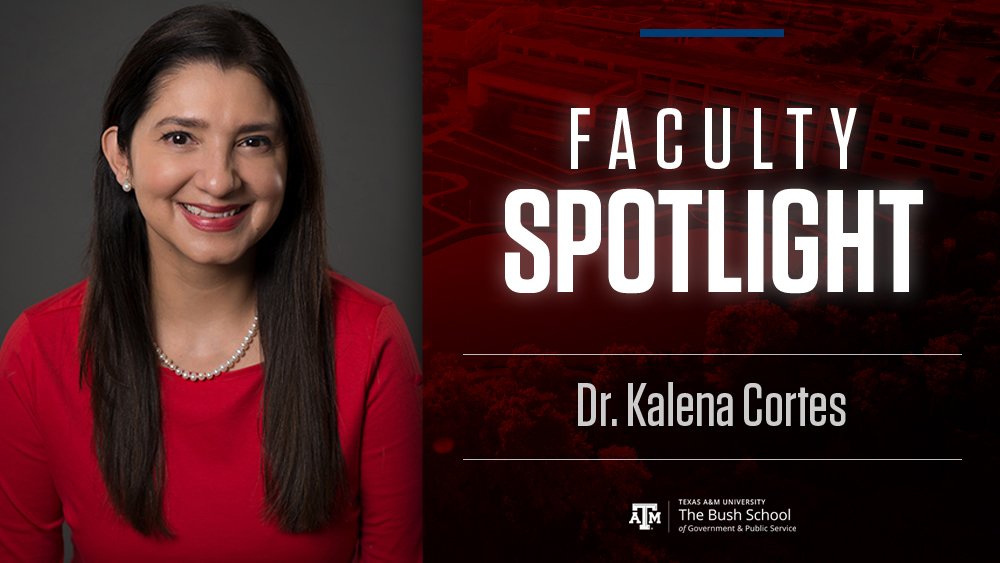
Dr. Kalena Cortes, an associate professor in the Master of Public Service and Administration (MSPA) department, came to the Bush School from Syracuse University. She earned her BA in economics from the University of California at San Diego (UCSD) and her PhD in economics from the University of California at Berkeley, where her dissertation focused on how immigrants assimilate in the United States. She then did a post-doctoral fellowship at Princeton University, during which she shifted her research focus toward education issues, primarily studying various policy aspects of the Texas Top 10% Plan.
In 2010, Cortes’ publication in the Economics of Education Review, “Do Bans on Affirmative Action Hurt Minority Students? Evidence from the Texas Top 10% Plan,” examined the effects of the Texas Plan on non-top 10% minority students. She presented new evidence on the effects of alternative admissions policies on the persistence and college completion of minority students. “I found that the change from affirmative action to the Top 10% Plan decreased both retention and graduation rates of lower-ranked minority students,” Dr. Cortes said, “and I found no evidence in support of the minority ‘mismatch’ hypothesis.” Her research on the Top 10% Plan has been covered by several media outlets: Inside Higher Ed, The Chronicle of Higher Education, and the Houston Chronicle.
Her emerging research interests in the economics of education and immigration policy will contribute significantly to the School’s policy research program. In addition, Dr. Cortes has been involved in a variety of major service activities, both on campus and in her profession. She is currently serving on the Board of Directors on the Association for Education Finance and Policy (AEFP) and is a Fellow at the Greater Texas Foundation. She is also the recipient of several grants and fellowships; her research has been funded by Spencer Foundation, American Educational Research Association, Greater Texas Foundation, W.E. Upjohn Institute for Employment Research, National Institutes of Health, and the US Department of Education – Institute of Education Sciences.
Cortes notes that coming to the Bush School is ironic, in that she had never visited Texas A&M University, despite working with A&M admissions data for many years. “The Bush School is a very dynamic place,” she said. “There’s energy in the air.” She also noted that the School has a lot of amazing opportunities for students to hear from and interact with prominent speakers from current and past administrations. The collegiality of her colleagues also impressed Cortes.
“The Bush School is great! My colleagues made me feel at home the first day I arrived. I’ve also been very impressed with the School’s students, who are very hard-working,” she added.
Dr. Cortes teaches a variety of classes including Education and Immigration Policy, Quantitative Methods I, and Quantitative Methods II. “I love teaching methods, as numbers can be exciting,” she says. She looks forward to sharing that enthusiasm with her students. She defines her teaching style as interactive. She has her students use real data to run statistical analyses, which enables them to better understand the statistical topics. “My quantitative courses have greatly benefited from my research. I integrate my empirical work into the lectures, which provides my students with insights into the immediate applicability of the statistical methods being taught in class.”